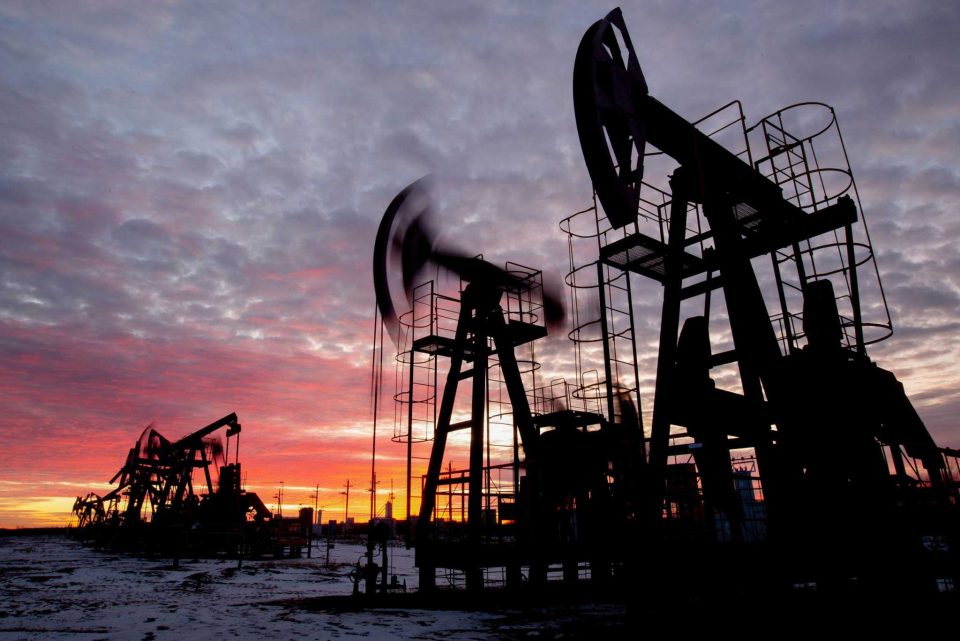Exxon Mobil and the rest of Big Oil have joined the global effort to isolate Vladimir Putin for his invasion of Ukraine, but with Middle Eastern producers standing with Russia and driving up gasoline prices, pressure is growing on North American drillers to sink new wells.
U.S. oil and natural gas companies face a problematic calculus with geopolitical consequences. Do they gamble on the Ukraine war keeping prices high and invest in new wells, or do they keep their promise to investors and return big profits to Wall Street, which has lost billions in the industry over the past decade?
Supply and demand never set oil prices alone, and the greater the crisis, the greater the political risk to the market. These are the days when chief executives earn their bonuses.
North American shale oil drillers and their investors, though, have reason to be wary of the high prices. The last time West Texas oil prices broke $105 a barrel, hydraulic fracturing was still experimental and OPEC was happy to maintain prices around $90 a barrel.
At that level, Texas operators could afford to try new things and still expect some return on their investment. As they perfected horizontal drilling and fracking, they drilled more and more, confident OPEC would maintain high prices. They were wrong.
When President Barack Obama lifted the oil export ban in 2015, American companies began cutting into OPEC’s market share. Saudi Arabia’s Crown Prince Mohammed bin Salman disapproved. He convinced OPEC to keep producing and let the price drop as Americans flooded the globe with crude.
Most OPEC oil breaks even at less than $20 a barrel, while most U.S. producers need $60. Years of low oil prices devastated the North American oil industry and sent investors fleeing. Once Texas oil no longer posed a threat, OPEC and their new partner Russia agreed to limit production and drive prices back to a profitable level.
As prices rose again, Americans began drilling again. In late 2019, the U.S. produced a record 13 million barrels a day. But the COVID-19 pandemic struck a few months later and gutted demand.
Prices dropped into the teens as oil producers scrambled to shut down wells. Then, as the economy slowly began to reopen, OPEC and Russia agreed to add 400,000 new barrels a month to meet growing demand.
With only mediocre prices and a real fear that OPEC could tank the market again, U.S. companies practiced what they call “financial discipline” to generate higher profits. Oil prices rose to $75 and everyone was happy.
Russia is the world’s second-largest oil producer, so when Putin ordered troops to Ukraine traders, worried about losing supply, drove up prices.
OPEC+, as the coalition with Russia calls itself, met Wednesday and surprisingly voted to let prices escalate, even though they could add more oil to the market and ease the pain. But OPEC+, prodded by Russia, decided to enjoy the windfall.
The cartel argued that because prices were due to “geopolitical developments” they should maintain the current output. The claim is laughable because oil prices are always about geopolitics. Mohammed saw a chance to retaliate against the West for condemning his murderous and dictatorial ways.
Big Oil and North American drillers must now make a call. Do they respond to the crisis and gamble prices will remain high through next year? Or do they also book the higher profits and allow the high prices to curtail demand?
The danger is that demand typically only drops during an economic recession.
President Joe Biden has encouraged U.S. companies to tap the 4,000 or so unused leases on federal lands and bring down gasoline prices and inflation. He’s also ordered the Strategic Petroleum Reserve to release 30 million barrels of crude.
Oil industry lobbyists, meanwhile, are leveraging the crisis to demand looser environmental regulations and more federal leases. They falsely blame Biden for the low number of operating rigs when it’s oil executives who are holding back to satisfy investor demands for profits.
In our free market, politicians and lobbyists don’t deliver oil; corporations do. The United States does not own oil companies like other nations.
On Monday, we’ll get some insight into what the world’s top fossil fuel CEOs are thinking when CERAWeek by S&P Global opens in Houston. The annual conference designed to boost investor spirits is a chance for the industry to defend its decisions and tout its future.
As long as the world depends on oil, though, dictators will use crude as a geopolitical weapon. The sooner we stop relying on fossil fuels, the sooner geopolitics will play less havoc on our economy and pocketbooks.
Chris Tomlinson writes commentary about business, economics and politics.
twitter.com/cltomlinson


